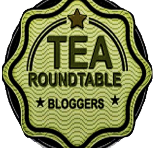 Purists in the organic world want the organic label to be strict and provide the consumer clear-cut choices and definitions and a guarantee of standards. Others allow for some some dilution in the label, arguing that it widens the field and allows more companies to offer products. A widely-discussed example is Organic Dairy and Milk. Most consumers are not aware of the details surrounding cows and pasture. Many think that by drinking Organic Milk, they are assured it comes from cows who roam pastures everyday and live in an idyllic environment. They are blissfully unaware that "access to pasture" is a controversial rule which creates a huge loophole for companies seeking to use this to their benefit. Thus, many companies use large confinement lots which may technically provide 'access' but never implement it so cows barely see the light of day.
In tea, we are fortunate that the rules are simpler and there are fewer opportunities for additives, synthetic substances and loopholes. For varietals such as Keemuns, Yunnans, Assams, Darjeelings and the like, it is 100% Organic without any pesticides or additives. For organic flavored teas, natural flavors allowed by the USDA are used. The more you know, the more informed is your decision.
Purists in the organic world want the organic label to be strict and provide the consumer clear-cut choices and definitions and a guarantee of standards. Others allow for some some dilution in the label, arguing that it widens the field and allows more companies to offer products. A widely-discussed example is Organic Dairy and Milk. Most consumers are not aware of the details surrounding cows and pasture. Many think that by drinking Organic Milk, they are assured it comes from cows who roam pastures everyday and live in an idyllic environment. They are blissfully unaware that "access to pasture" is a controversial rule which creates a huge loophole for companies seeking to use this to their benefit. Thus, many companies use large confinement lots which may technically provide 'access' but never implement it so cows barely see the light of day.
In tea, we are fortunate that the rules are simpler and there are fewer opportunities for additives, synthetic substances and loopholes. For varietals such as Keemuns, Yunnans, Assams, Darjeelings and the like, it is 100% Organic without any pesticides or additives. For organic flavored teas, natural flavors allowed by the USDA are used. The more you know, the more informed is your decision.
Organic Integrity
An article in the Washington Post today discusses the integrity of the 'Organic' label. Under the aegis of the USDA (Department of Agriculture), the U.S. has a national organic program which dictates what's organic and what's not. There are different levels of "Organic" - from 100% (think pure Makaibari Darjeeling tea) to 95% (Organic Black tea with Raspberry flavor) to a category called Made with Organic Ingredients where at least 70% of the product must be from pure organic materials. (We rarely use this last category).
 Purists in the organic world want the organic label to be strict and provide the consumer clear-cut choices and definitions and a guarantee of standards. Others allow for some some dilution in the label, arguing that it widens the field and allows more companies to offer products. A widely-discussed example is Organic Dairy and Milk. Most consumers are not aware of the details surrounding cows and pasture. Many think that by drinking Organic Milk, they are assured it comes from cows who roam pastures everyday and live in an idyllic environment. They are blissfully unaware that "access to pasture" is a controversial rule which creates a huge loophole for companies seeking to use this to their benefit. Thus, many companies use large confinement lots which may technically provide 'access' but never implement it so cows barely see the light of day.
In tea, we are fortunate that the rules are simpler and there are fewer opportunities for additives, synthetic substances and loopholes. For varietals such as Keemuns, Yunnans, Assams, Darjeelings and the like, it is 100% Organic without any pesticides or additives. For organic flavored teas, natural flavors allowed by the USDA are used. The more you know, the more informed is your decision.
Purists in the organic world want the organic label to be strict and provide the consumer clear-cut choices and definitions and a guarantee of standards. Others allow for some some dilution in the label, arguing that it widens the field and allows more companies to offer products. A widely-discussed example is Organic Dairy and Milk. Most consumers are not aware of the details surrounding cows and pasture. Many think that by drinking Organic Milk, they are assured it comes from cows who roam pastures everyday and live in an idyllic environment. They are blissfully unaware that "access to pasture" is a controversial rule which creates a huge loophole for companies seeking to use this to their benefit. Thus, many companies use large confinement lots which may technically provide 'access' but never implement it so cows barely see the light of day.
In tea, we are fortunate that the rules are simpler and there are fewer opportunities for additives, synthetic substances and loopholes. For varietals such as Keemuns, Yunnans, Assams, Darjeelings and the like, it is 100% Organic without any pesticides or additives. For organic flavored teas, natural flavors allowed by the USDA are used. The more you know, the more informed is your decision.
 Purists in the organic world want the organic label to be strict and provide the consumer clear-cut choices and definitions and a guarantee of standards. Others allow for some some dilution in the label, arguing that it widens the field and allows more companies to offer products. A widely-discussed example is Organic Dairy and Milk. Most consumers are not aware of the details surrounding cows and pasture. Many think that by drinking Organic Milk, they are assured it comes from cows who roam pastures everyday and live in an idyllic environment. They are blissfully unaware that "access to pasture" is a controversial rule which creates a huge loophole for companies seeking to use this to their benefit. Thus, many companies use large confinement lots which may technically provide 'access' but never implement it so cows barely see the light of day.
In tea, we are fortunate that the rules are simpler and there are fewer opportunities for additives, synthetic substances and loopholes. For varietals such as Keemuns, Yunnans, Assams, Darjeelings and the like, it is 100% Organic without any pesticides or additives. For organic flavored teas, natural flavors allowed by the USDA are used. The more you know, the more informed is your decision.
Purists in the organic world want the organic label to be strict and provide the consumer clear-cut choices and definitions and a guarantee of standards. Others allow for some some dilution in the label, arguing that it widens the field and allows more companies to offer products. A widely-discussed example is Organic Dairy and Milk. Most consumers are not aware of the details surrounding cows and pasture. Many think that by drinking Organic Milk, they are assured it comes from cows who roam pastures everyday and live in an idyllic environment. They are blissfully unaware that "access to pasture" is a controversial rule which creates a huge loophole for companies seeking to use this to their benefit. Thus, many companies use large confinement lots which may technically provide 'access' but never implement it so cows barely see the light of day.
In tea, we are fortunate that the rules are simpler and there are fewer opportunities for additives, synthetic substances and loopholes. For varietals such as Keemuns, Yunnans, Assams, Darjeelings and the like, it is 100% Organic without any pesticides or additives. For organic flavored teas, natural flavors allowed by the USDA are used. The more you know, the more informed is your decision.


